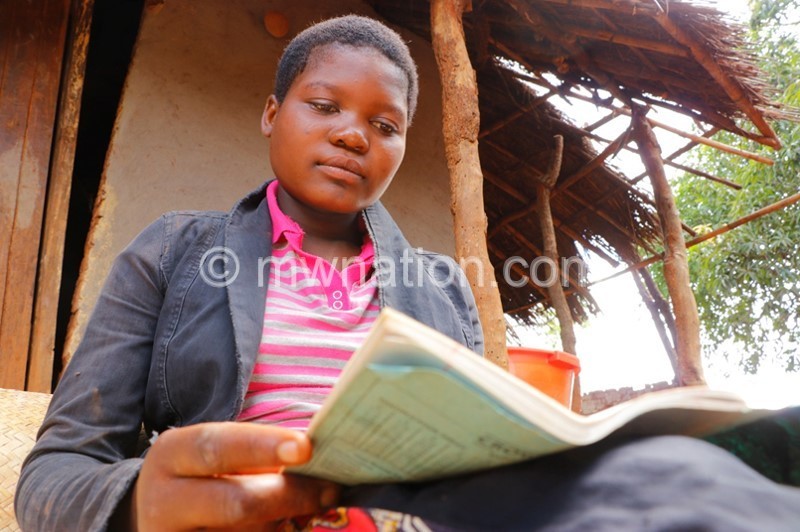Hunger fuels forced marriages
Mangochi, a shoreline district, is the country’s top tourist hotspot. The sprawling mountain ranges, flat grasslands dotted with baobab trees and the palm-fringed shores of picturesque Lake Malawi present breathtaking views.
But beneath this beauty lies a tradition that has, for years, deprived girls a chance to pursue their dreams as they are married off at a tender age to older men.

Says Unicef child protection specialist Malla Mabona: “In the past two years, we have seen an increase in cases where parents are offering young girls for marriage.
“Mostly, the decision is driven by hunger. Families are struggling to get food due to the drought that hit the country for the past two farming seasons. The only way out is to offer their girls to richer men in their communities. This is a gross abuse of the girl’s right to education.”
Eliza, 16, was caught in this snare two years ago.
“It all started when my father approached his friend offering to marry me to his son who was working in South Africa,” she recalls.
The girl, a second oldest child in a family of seven, was forced to marry the man who reportedly offered her father K20 000 and two mobile phones.
“I was so angry when my father told me to stop school and prepare for marriage. I had never thought of getting married before. I wanted to continue with my education and become self-reliant,” she says.
Like many farming families in the area, Eliza’s parents have endured dwindling harvests due to dry spells caused by El Nino. The big family harvested only three bags of maize, which lasted three months.
As the hunger worsened, Eliza’s mother was opposed to the idea of offering the schoolgirl for marriage- for she was safe in school.
Forced out of school
The conflict between Eliza’s parents affected her education.
“My father saw my mother’s refusal to have me married as defiance and he decided not to support us in any way,” she says.
For the two, life became tougher.
“In addition to the food shortages we experienced, we didn’t have soap,” she explains.
Eliza started going to school without basics, including notebooks and pens.
“It became so difficult for me to attend classes. I pulled out of school in Standard 6 to look for odd jobs around the village to help my family,” she says.
Every morning, she would join her mother to look for work in their rural community. But they had to sweat to find jobs as almost all the villagers had been affected by the drought.
Meanwhile, the differences between Eliza’s parents deepened. Her father left the family and migrated to Mozambique since he had no money to refund his friend’s family.
Ever since, his family has not heard from him.
“It pains that I have not seen my father for three years. I don’t know if he is alive or dead. Despite forcing me to marry, I still love him. I want him back,” she says.
Unicef support
Eliza decided to return to school when Unicef in collaboration with Plan International and Ujamaa Pamodzi introduced some reflect action circles in which community members discuss issues targeting girls who had dropped out of school.
The circles also offer the villagers and learners a safe space to meet and discuss issues of violence and abuse affecting children.
Through the discussions, they reflect on the causes of the problem and likely results. They also plan how to overcome the challenges.
“Following the introduction of reflection action circles, community members have taken keen interest in the welfare of children especially girls,” says Cassim Saiti, a government social welfare officer working with Plan and Ujamaa in the project.
In Katuli, where Eliza lives, community groups have been formed that conduct door-to-door visits to households to alert them on child rights.
“When they come across a family where girls are not going to school or plans to offer them for marriage, they advise the parents that it is a violation of their rights before bringing the issue to us for further action,” he says.
According to Cassim, 28 girls have returned to school through the reflection action circles.
Back in school
And Eliza is one of them.
“I was excited when I was chosen to attend the reflect circles with other girls who had also dropped out of school,” she says.
This opportunity helped the girl reflect on her future and she decided to go back to school.
“I want to become a doctor,” she discloses. “I feel this job will not only help me support my mother and siblings financially, but also help the sick,”
The Standard 7 pupil adds: “My friends still come to me saying that I should marry.
“They tell me that they will go and live in South Africa where their husbands are, but I am not taken up by such things.”
She is confident that she will travel to South Africa and beyond on her own if I she remains in school and realises her dream of becoming a doctor.
Eliza says that during the time she dropped out, three men visited her home asking for her hand in marriage.
“Most of these men just impregnate and the girls end up caring for children whose fathers never come back home. I don’t want to be that girl,” she asserts.





